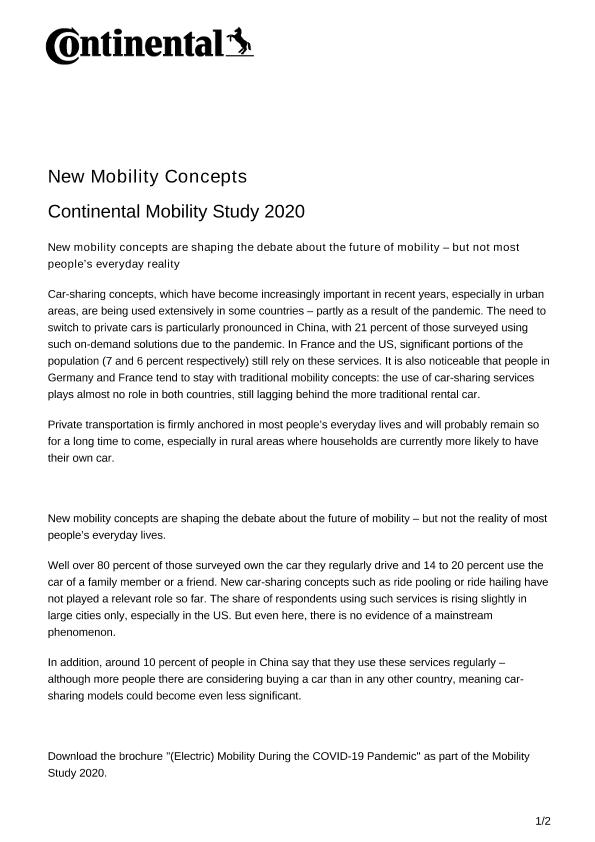Continental mobility study 2020 : new mobility concepts

Contenido multimedia no disponible por derechos de autor o por acceso restringido. Contacte con la institución para más información.
| Tag | 1 | 2 | Value |
|---|---|---|---|
| LDR | 00000cam a22000004b 4500 | ||
| 001 | MAP20210002588 | ||
| 003 | MAP | ||
| 005 | 20210127144644.0 | ||
| 008 | 210125s2021 deu|||| ||| ||eng d | ||
| 040 | $aMAP$bspa$dMAP | ||
| 084 | $a892 | ||
| 245 | 0 | 0 | $aContinental mobility study 2020 $b: new mobility concepts |
| 260 | $aHanover$bContinental$c2021 | ||
| 300 | $a2 p. | ||
| 520 | $aCar-sharing concepts, which have become increasingly important in recent years, especially in urban areas, are being used extensively in some countries partly as a result of the pandemic. The need to switch to private cars is particularly pronounced in China, with 21 percent of those surveyed using such on-demand solutions due to the pandemic. In France and the US, significant portions of the population (7 and 6 percent respectively) still rely on these services. It is also noticeable that people in Germany and France tend to stay with traditional mobility concepts: the use of car-sharing services plays almost no role in both countries, still lagging behind the more traditional rental car. | ||
| 650 | 4 | $0MAPA20200003151$aVehículos compartidos | |
| 650 | 4 | $0MAPA20110017835$aMovilidad | |
| 650 | 4 | $0MAPA20080550592$aEncuestas | |
| 650 | 4 | $0MAPA20120019492$aTendencias | |
| 710 | 2 | $0MAPA20080437541$aContinental |

